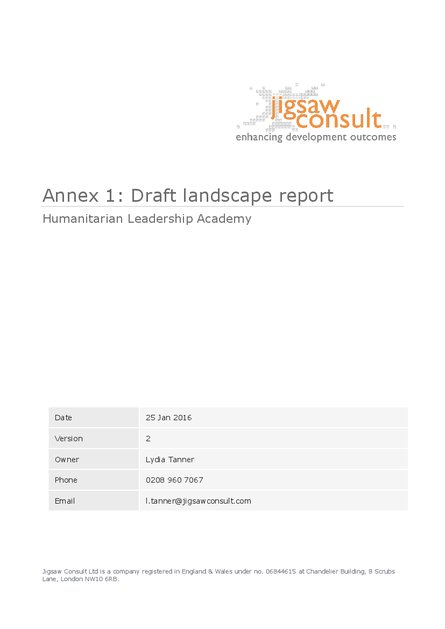
The study mapped the evidence for how learning and capacity building initiatives can impact humanitarian response at an individual, organisational and country/response level. It explored the five dominant forms of learning intervention: classroom-based learning, online and blended learning, simulation, coaching and mentoring, and informal knowledge sharing networks. The researchers mapped the evidence contained in 60 articles in the literature, and through 45 documented programmes. Overall, humanitarian organisations often failed to provide a rationale for the chosen pedagogy or knowledge sharing strategy, and in general, the evidence for these modalities working in the humanitarian sector is anecdotal. The strongest evidence existed for simulation and for online and offline knowledge sharing networks.